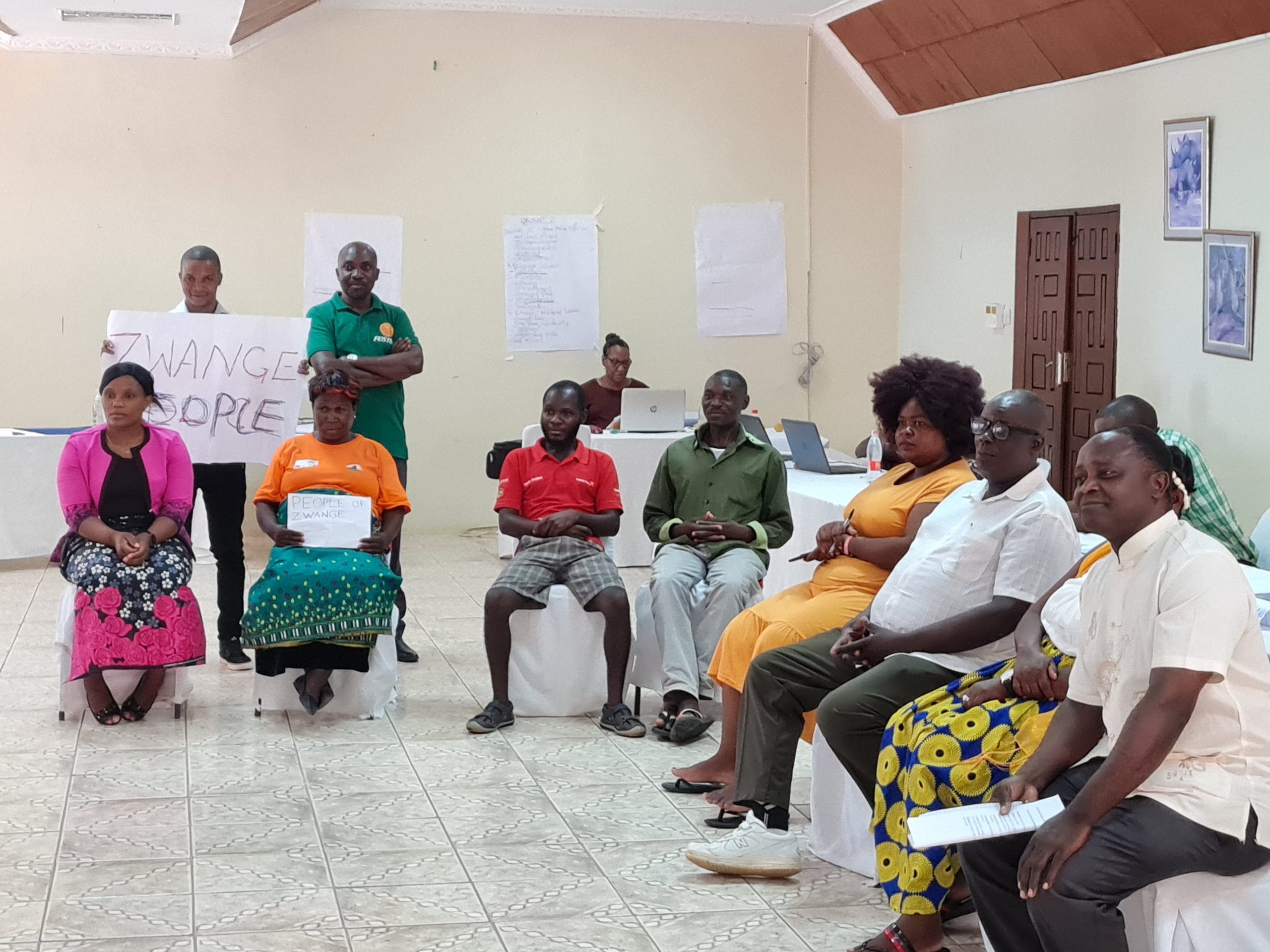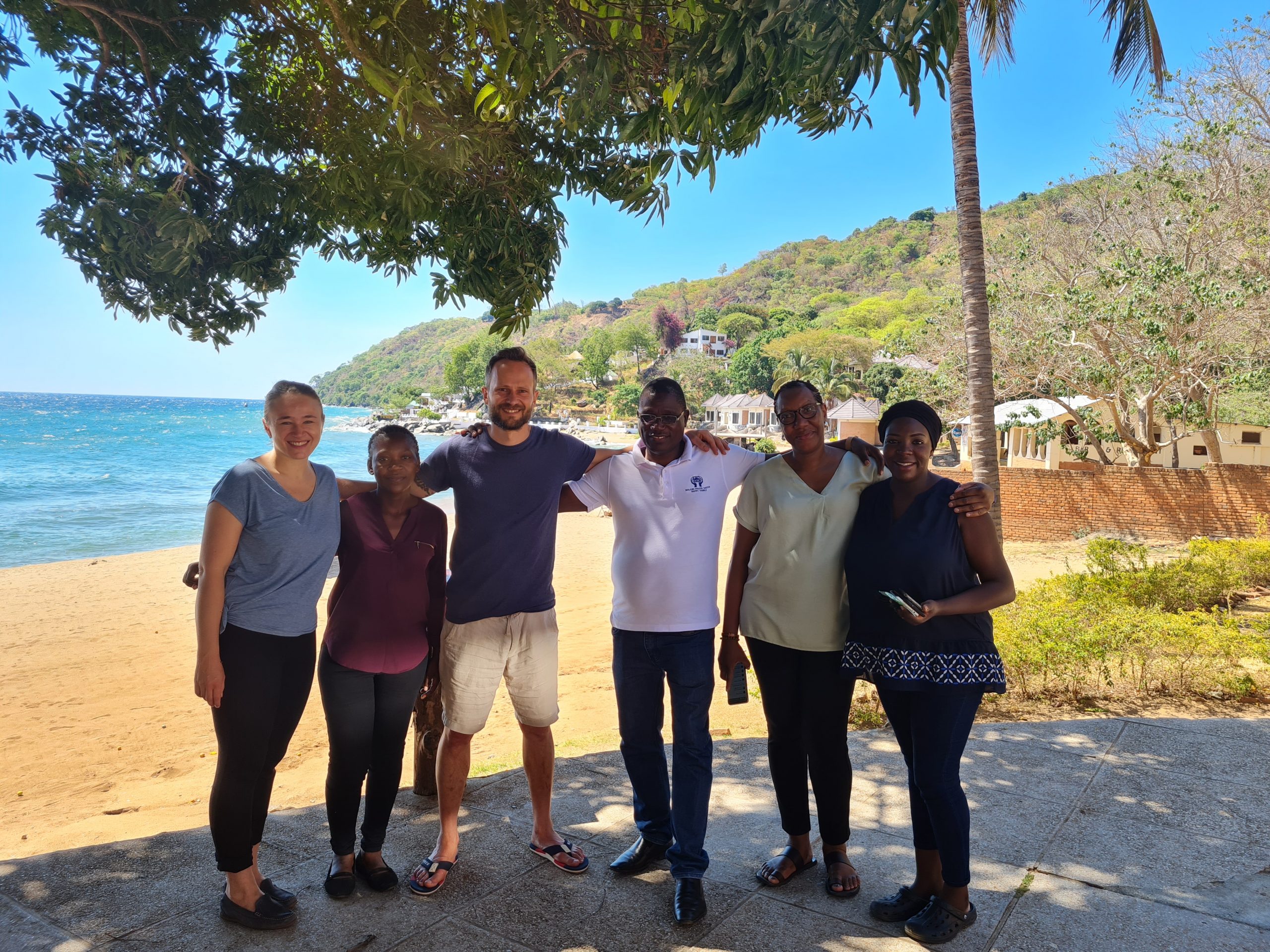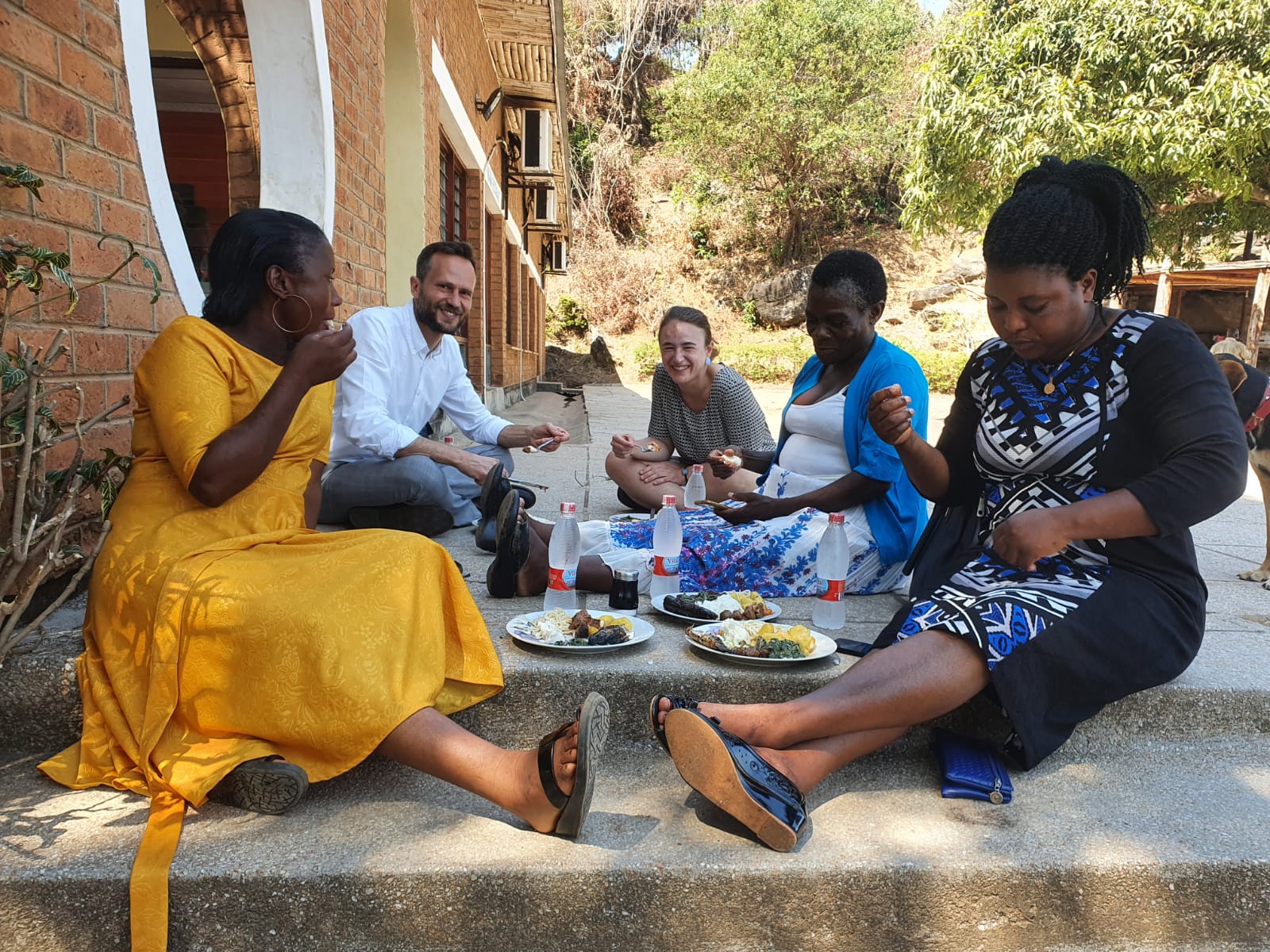Local communities in Malawi gain tools for resolving disputes
CMI contributes to better dispute resolution and local conflict management through mediation training in Nkhata Bay with FemWise-Africa.

The participants of the training were police officers, community policing members, traditional leaders, religious leaders and members of women’s and youth groups. Picture: Erika Paakkinen.
CMI organised mediation training in Nkhata Bay, Malawi, in cooperation with local FemWise-Africa members and the Malawi Police Service (MPS). The aim was to create more effective local conflict management using mediation training. The training involved 40 participants active in local conflict resolution efforts, including police officers, community policing members, traditional leaders, religious leaders and members of women’s and youth groups.
The aim was to provide these groups with skills, values and approaches to make conflict resolution more inclusive by involving and bringing them together. The local conflicts often stem from clan-based divisions, where traditional leaders, as well as women, have an important role as mediators and enablers of dialogue between the parties in conflict.
“The goal was that the participants would not only learn important conflict resolution and mediation skills, but that the different groups get together and discuss the issues causing violence in their communities and find better ways of collaborating”, said Juhana Lehtinen, Senior Project Manager at CMI.
Training initiated from local need

The main organisers of the training: Erika Paakkinen (left), Mable Msefula, Juhana Lehtinen, Alexander Moyo, Oury Traoré and Nolliettie Chihana.
The training took place in the framework of the long-standing collaboration between CMI and the African Union (AU), funded by the Finnish Ministry for Foreign Affairs.
The AU Department for Political Affairs, Peace and Security (PAPS) had asked CMI to run a training initiative together with Malawian FemWise members from the MPS. The Network of African Women in Conflict Prevention and Mediation, officially referred to as FemWise-Africa, is a subsidiary of the Panel of the Wise, one of the critical pillars of the Peace and Security Architecture of the African Union (APSA).
The Network aims to strengthen the role of women in conflict prevention and mediation efforts by providing a platform for strategic advocacy, capacity-building and networking. CMI has worked closely with the network since its creation in 2017, mostly through its secretariat in the AU PAPS Department.
Many participants said that it was the first time such training has been organised in Malawi. Malawi does not have a recent history of conflicts, which explains why it has not received the same attention on conflict prevention and mediation as Mozambique, for example.
Successful pilot could have national-level impact

I think the training we did with the members of FemWise-Africa Malawi members is a good example of the power of the network, and shows what individual members can achieve through it”, said Juhana Lehtinen.
“The participants said that it was the first time they have received training in dialogue and mediation, even though many of them have acted as mediators in their communities before”, explained Lehtinen.
The feedback from the participants stressed that the training gave them a framework and tools for their mediation efforts. Overall, the outcomes of the pilot initiative have been a success, and the project was locally important. A post-training survey, to be carried out later, will reveal how far the newly learned mediation methods are actually put in practice and reducing violence in local communities.
“The training focused on a specific geographical area in Malawi, but if the FemWise members can reproduce it elsewhere in the country, it could have a national-level impact. I think the training we did with the members of FemWise-Africa Malawi members is a good example of the power of the network, and shows what individual members can achieve through it”, said Lehtinen, who also noted that the practical nature of the training offers an opportunity for local ownership of methods and solutions to conflicts.
Kreeta Koskijoki/CMI